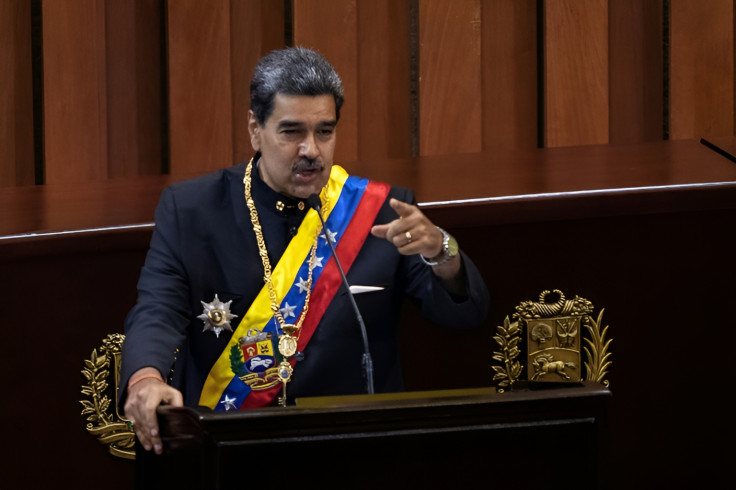
13 diplomatic officials who make up the Office of the United Nations High Commissioner for Human Rights (OHCHR) in Venezuela have arrived in Panama to continue their work following their expulsion by the government of Nicolás Maduro.
Agency spokesperson Marta Hurtado confirmed to Spanish news agency EFE that the office led by High Commissioner Volker Türk has a global mandate, allowing it to continue monitoring the human rights situation in Venezuela even without a physical presence in the country.
The 13 UN employees left Venezuela after the Maduro government suspended the activities of the organization in Caracas last Thursday and gave its staff 72 hours to leave.
The Venezuelan Government's actions followed statements from the UN Human Rights Office regarding the arrest of human rights activist Rocío San Miguel on February. She was accused by the govenrment of "terrorism," "conspiracy," and "betrayal of the homeland," saying she was linked to an alleged plot to assassinate Maduro.
On Monday, during his television program, Maduro delved into the expulsion. "That office deviated. (It went) from being a technical advisory office that should respect the institutions and rather advise on the legal reforms that the country needs, advise the institutions to improve, suddenly to an internal espionage office, of internal conspiracy," said Maduro.
"And then it transformed into what we call a law firm, the law firm of terrorists, conspirators, coup plotters, and assassins of Venezuela."
#Comunicado Venezuela anuncia su decisión de suspender las actividades de la Oficina Técnica de Asesoría del Alto Comisionado de Naciones Unidas para los Derechos Humanos en Venezuela y realizar una revisión integral de los términos de cooperación técnica descritos en la Carta de… pic.twitter.com/6OUb85cCIf
— Yvan Gil (@yvangil) February 15, 2024
The decision to expel this official coincided with another situation. Just one day before giving the staff three days to leave, the UN Special Rapporteur on the Right to Food, Michael Fakhri, publicly stated that the Venezuelan regime had prevented him from visiting detention centers.
Fakhri, who will present his final report on Venezuela during the United Nations Human Rights Council in March, expressed on last Wednesday "serious" concern about the food security of prisoners, especially those detained in pretrial detention centers, which house almost double the number of inmates they are designed for, according to a report presented last week by the NGO 'Una Ventana a la Libertad' (UVL).
According to Fakhri, some individuals serving sentences in these centers for several years due to judicial delays may be subjected to "inhuman, degrading treatment, and may constitute torture."
He also said that, according to preliminary observations, eight out of ten Venezuelans live in poverty (82%) and over half in extreme poverty (53%). Fakhri warned that the Venezuelan government's programs to address hunger and malnutrition are not sufficient and have become "susceptible to political clientelism."
#Venezuela: #CIDH condena expulsión de equipo técnico del Alto Comisionado de Derechos Humanos de la ONU.#DerechosHumanos 👉🏼 https://t.co/ggZzPZhoAK pic.twitter.com/c7d2EThjX9
— CIDH - IACHR (@CIDH) February 20, 2024
The Inter-American Commission on Human Rights (IACHR) was one of the institutions that condemned the decision to suspend the activities of the United Nations Office of Human Rights in Venezuela and urged Maduro to reverse the decision.
"The IACHR shares the concerns of the OHCHR regarding the treatment of individuals perceived as opponents to the government. The Commission has documented arbitrary detentions, extrajudicial executions, the absence of due process, indefinite incarcerations, and forced disappearances of opposition individuals and human rights defenders," the organization reported in a release.
It further remarked, "In recent years, the Venezuelan government has demonstrated neglect of its international obligations by denouncing treaties and conventions and expelling civil society organizations with a presence in the field and members of electoral missions. The recent decision to suspend the activities of the OHCHR demonstrates its rejection of international scrutiny on human rights, which is particularly serious in a country characterized by the closure of all democratic space and the absence of the rule of law."
© 2024 Latin Times. All rights reserved. Do not reproduce without permission.







